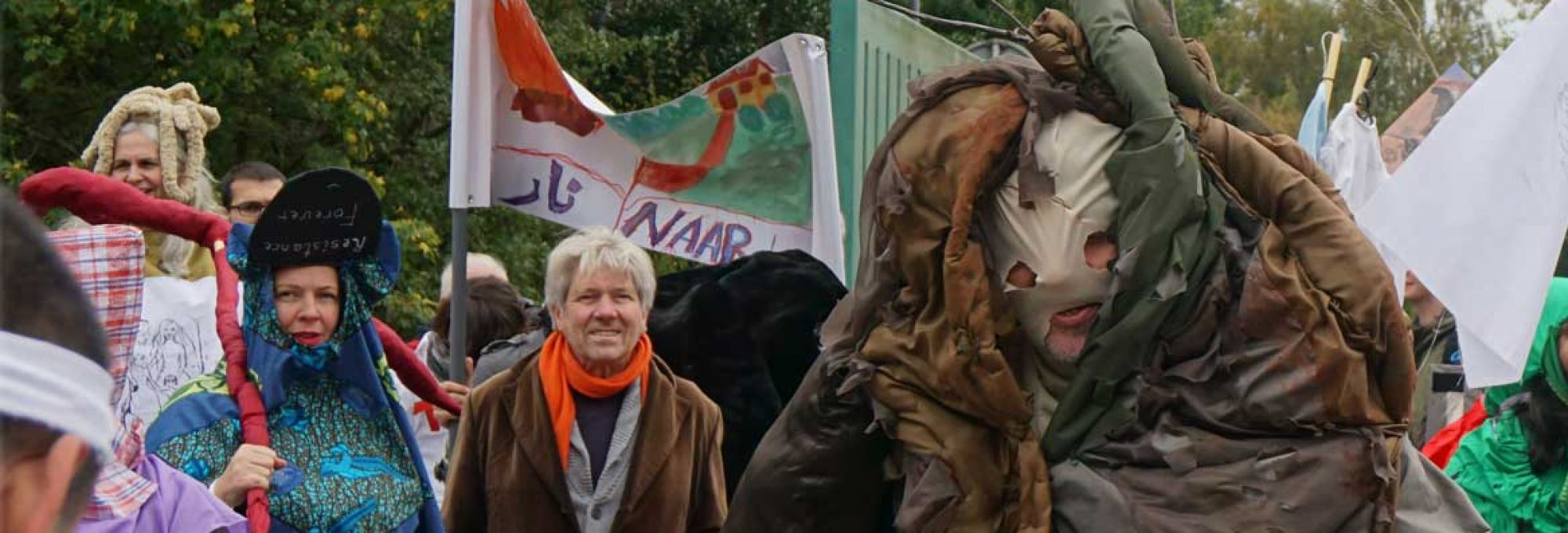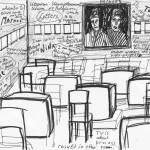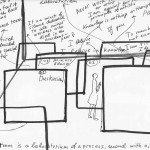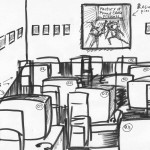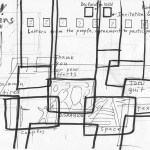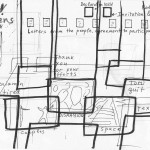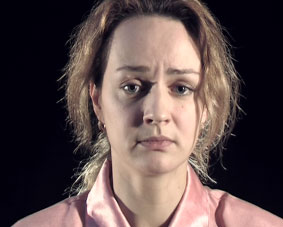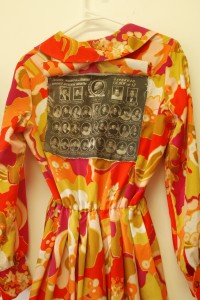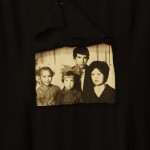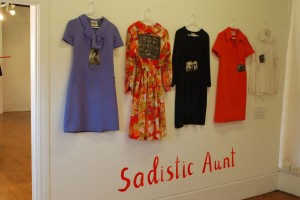Cto Delat Newspaper https://chtodelat.org/
Workshop In Perm 2010
SKETCHES TO THE UPCOMING VIDEO INSTALLATION UTOPIAN UNEMPLOYMENT UNION N 3 GYNAIKA INSTITUTION /Antwerpen
“Fragility and Power” Installation in ICA /Chto Delat Project
NOVINKI/Matthias Meindl/2010
(copy from www.novinki.de)
„Wir arbeiten ja mit Menschen. Das sind nicht Leinwände und Farben. Das ist unglaublich schwer.“
Interview mit Natal’ja Peršina-Jakimanskaja (Gljuklja) aus der Gruppe Factory of Found Clothes und der Gruppe Chto delat
15 Jahre feministische Themen mit der Gruppe Factory of Found Clothes und ein zunehmendes Engagement in der linksaktivistischen Künstlergruppe Chto delat. Umgeben von der von der Künstlerin umgenähten Kleidung, in einer schön gealterten Atelierwohnung im legendären Benua-Haus auf dem Kamennoostrovskij Prospekt in Petersburg, fand dieses Gespräch mit der Künstlerin Natal’ja Peršina-Jakimanskaja über Kunst und Politik statt.
Three Mothers and one Choir. Mutter eins.
novinki: Natalja, Du gehörst gleichzeitig der Gruppe Factory of Found Clothes (F.N.O.) und der Gruppe Chto delat an. Erzähl doch bitte, inwiefern Du diese Projekte und Tätigkeiten im Moment trennst. Sind das für dich zwei verschiedene Aspekte deines Schaffens oder sind die Grenzen zwischen ihnen verwischt?
Gljuklja: Das sind verschiedene Formen des Schaffens, Continue reading “NOVINKI/Matthias Meindl/2010”
The Urgent Need To Struggle
THE URGENT NEED TO STRUGGLE
August 31, 2010
ICA London
Chto delat?, film still from “The Tower: A Songspiel,” 2010
Chto delat? (What is to be done?)
The Urgent Need to Struggle
9-12, 15-19, 22-26, 29 September
3, 6-10, 13-17, 20-24 October 2010
ICA London
Institute of Contemporary Arts
The Mall
London SW1Y 5AH
United Kingdom
www.ica.org.uk/chtodelat
This autumn, the ICA presents the first major project in the UK by Russian collective Chto delat? (What is to be done?). Continue reading “The Urgent Need To Struggle”
Shop of the Utopian Clothes
PROJECT STATEMENT
This shop was created in order to remind people (be they men, women, girls or boys) that they are free, that there is true love on earth, and that they are not obligated to follow what others say, neither their parents nor the boss at work, but rather, they can find ways to solve all problems, ways to exist in this world. Their internal world (including all weaknesses, fears, and illusions) is a treasure, despite the brutal reality of everyday life which often argues against this tenderness. In the store, there are very dear things (this means that are hard to part with), and likewise, there are very cheap things. This is in accordance with a desire to make the store truly democratic. Because a dear thing can be given to any person as a reward for what he achieved, or plans to achieve, in life. The things in the store try to converse with the observer about his or her desires, longings, unquenchable hopes and dreams. These things differ from ordinary objects in that they have already conversed with people (other people wore them, and the artist pondered over them.) They are wiser than ordinary things and, it follows, much closer to the human heart. It could be said, that the FNO Shop sells things “inside out,” because unlike ordinary clothing that hides the sensitivities of its wearer as an apparatus of the collective mindset, this clothing actually reveals it. By showing a glimpse of the wearer’s soul, it manifests a relationship to the world as to an ideal lover who understands and accepts you as you are, or even as more than you are. The FNO Shop is functioning as a teaching program, a cognate-analog to the European “workshop,” that includes art therapies that the creators of FFC developed over the course of many years in its practice. In connection with this program, the store does not have ordinary salespeople; by way of contrast, there are more of therapists who are trying to reach together with a customer the level of communication that can help you to solve the problem and get charismatic in a finding your own ways for existing in the society.
The Clothes Workshop (proposal, work in progress so far)
The workshop provides tools for the participants to explore and express their inner reality.
Tabitha Kane
Sadistic Aunt
Clothes from Lena’s aunt.
Once in our project came Lena. She came from a small town. As there it is very expensive to rent an apartment in St-Petersburg she was living at her aunt’s home. Aunt seems to be a very nice person from the beginning, but later started to be sadistic and tiresome. Lena complained about her aunt to us. We thought of a solution; how to help her?
And we created the idea of asking her to bring aunt’s album with photographs and her dresses from the past. Then we created a decision to print photographs to textile and include them to the clothes from aunt’s wardrobe. When the work was done Lena showed her aunt the objects that we created with the help of the situation. Aunt’s mind was moved; she did not expect such an extraordinary thing and was pressed by starting a kind of psychoanalyze of herself in order to understand what happened with her.
After that Lena got a kind of resistance to aunt (also for understanding her better) and managing the situation. We were proud and happy that it helped her.
Polly’s Jacket
Polly’s Jacket.
Polly had a child when she was seventeen. The child’s father, a nonconformist artist, straightforwardly warned Polly that he wouldn’t have anything to do with her or her child. You can imagine what she had to go through after giving birth, especially since her mother isn’t exactly mentally well. The letter on the jacket is addressed to an imaginary ideal lover who would rescue her from all her woes and bring happiness to her child.
